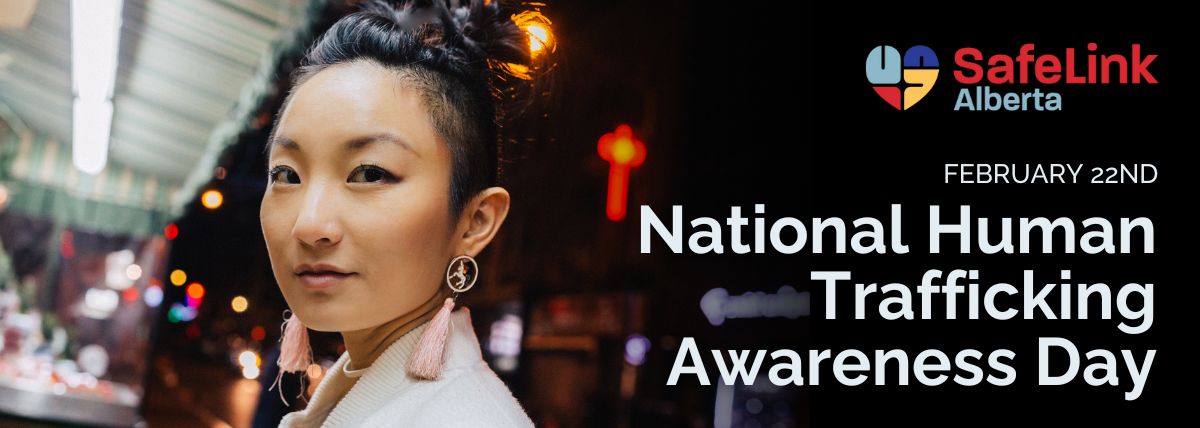February 22 is marked as National Human Trafficking Awareness Day. Every year, February 22 is a day to encourage Canadians to “raise awareness of the magnitude of modern-day slavery in Canada and abroad and to take steps to combat human trafficking.”
What is human trafficking?
According to the criminal code, human trafficking encompasses actions such as recruiting, transporting, transferring, receiving, holding, concealing, or harbouring individuals, as well as exerting control, direction, or influence over their movements, all to exploit them or aid in their exploitation.
In simpler terms, human trafficking involves making a profit from exploiting another person through force, manipulation, or coercion.
Contemporary discussions around human trafficking tend to hyper-focus on sex trafficking, eliciting a moral panic akin to the “stranger danger” panic of the 1980s: the fear that unknown strangers, racialized men in particular, are kidnapping women and children for sexual exploitation.
The reality in Alberta, however, is that the most common form of human trafficking is labour trafficking, disproportionately impacting migrant workers with precarious legal status. When instances of sex trafficking do occur, it is predominantly rooted in intimate partner or domestic violence and abuse.

Is all sex work trafficking?
When a person willingly takes part in the sale of sex, and it is consensual, it is called sex work. When a person takes part in the sale of sex through threat, abduction or other means of coercion, this is called sex trafficking. Sex work and sex trafficking are separate experiences.
The universalizing of sexual labour as being exploitative in total is harmful to sex workers. Sexual exploitation and trafficking are heinous and debilitating experiences, and it is a disservice to all to continue perpetuating sensationalism rather than to understand the real mechanisms and nuances of these experiences. Equating the sex industry to sex trafficking perpetuates the stigma against sex workers, increases barriers to support, and diverges attention away from community-named issues.
How do we address human trafficking?
Trafficking is rooted in a denial of labour and human rights. However, current legislation and policy are contributing to the inequitable access to these rights for immigrants, sex workers, and other marginalized populations. To truly address the trafficking of all forms of labour, policy and practice must align with calls for Status for All in addition to decriminalizing sex work.
Research shows that the criminalization of sex work does not decrease instances of trafficking and instead contributes to the poor working conditions of erotic labourers. People with precarious legal status cannot access health care, financial aid, or government support. This creates an environment in which some are vulnerable to exploitative employers. To address this, migrant rights organizations advocate for full and permanent immigration status for all migrants.
How do we support those experiencing trafficking?
When looking for support for people who are experiencing trafficking, it is important to know how to screen support to determine whether they are rooted in supporting trafficking in a way that is inclusive of people who choose to partake in sex work. Unfortunately, some use trafficking as a way to advocate for sex work criminalization and believe that sex work can and should be eradicated. Here are some examples to look for on an organization’s website:
| Red Flags | Green Flags |
|---|---|
| Mentions of sex trafficking/exploitation exclusively | Focuses on all forms of trafficking |
| Uses stigmatizing language against sex workers (prostitution, “lifestyle”, selling your body) | Utilizes labour-centered language (sex work, erotic labour, sex industry) |
| Gendered language | Inclusive of all genders |
| Requires modification in behaviour to access services (ceasing to engage in sex work, requiring sobriety) | Utilizes labour-centered language (sex work, erotic labour, sex industry) |
| Extravagant claims and statistics with no reliable sources | Cites peer and community-reviewed research to back any claims |
| Vague descriptions of what supports are available to people | Clear expectations of what can be offered to people needing support |
Human trafficking remains a vague and sensationalized area, and it is of utmost importance to say what we mean, to center labour rights for all, and to critically examine sources around human trafficking. Let us be aware of the reality, nuances, and harms of the denial of human rights.
Access our SHIFT Program
Shift has a rights-based approach to sex work.
Shift is a Calgary-based program that provides support to adults currently or previously engaged in sex work. Shift uses a rights-based approach to sex work, recognizing that sex work is a choice for many and respecting the rights of adults to make this choice. Shift also recognizes that, for some, factors such as poverty or exploitation can put people into situations where they don’t have control. The program meets people where they are at, whether they want to continue sex work, safely transition, or anything in between.

